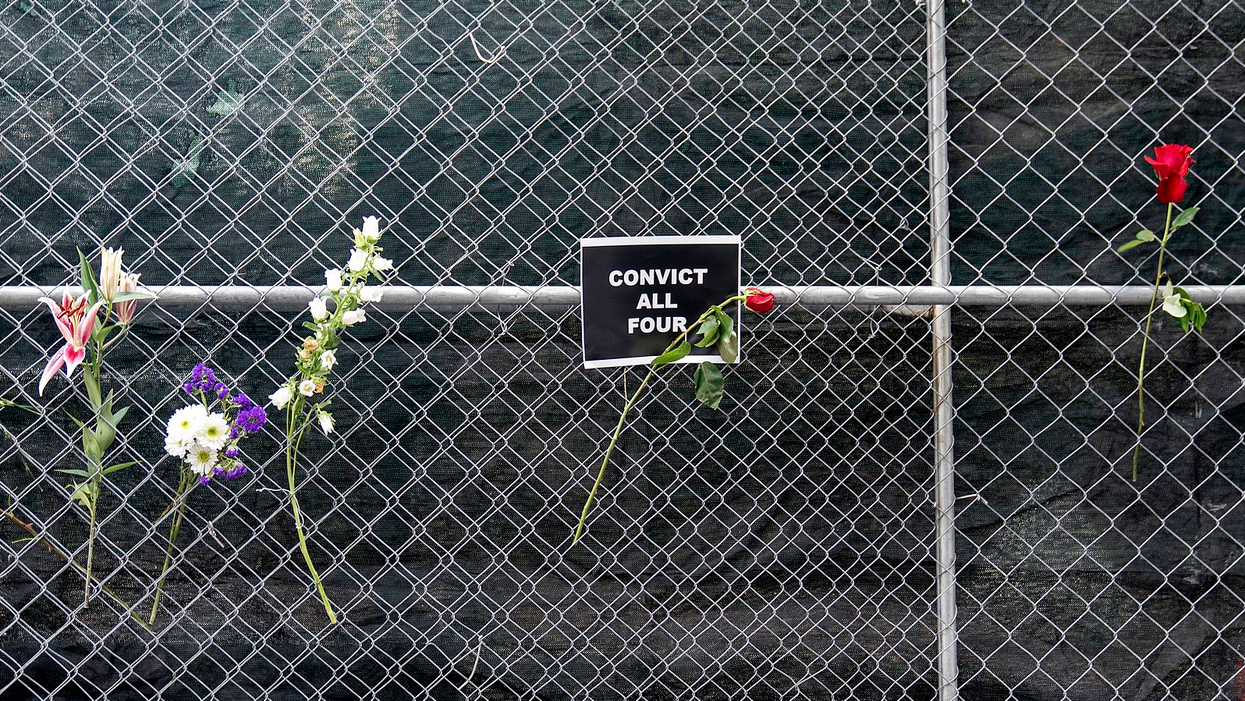At Funeral Of White Teen Killed By Cop, Sharpton Signals Yearning For Change
There's no doubt that left-wing culture warriors have done great harm to the Democratic cause. Some of it is mere foolishness. I've never forgotten being chided at a college talk several years ago for using the word "murderess" to describe a character in my book Widow's Web who shot her husband in his sleep and later orchestrated a plot to kill her defense lawyer's wife.
"Murderess," one professor said, was unacceptably "gendered" language. To quibble about it would have been pointlessly distracting. Even so, I've wondered about it ever since. After all, is "murderer" an honorific? To most people, "murderess" conveys something even more sinister; a meaningful distinction. What's gained by making language less precise?
But it's when cant touches upon real world concerns that the trouble starts. Consider the phrase "Defund the Police." Has there ever been a dumber, more politically maladroit slogan in American political history? Worse even than Hillary Clinton's "basket of deplorables."
Far worse, actually. Clinton's remark merely convinced people that she was a snob. Rhetoric about doing away with cops made voters think that liberal Democrats inhabit a different planet. In an interview with VOX, veteran political operative James Carville put it this way: "Maybe tweeting that we should abolish the police isn't the smartest thing to do because almost [bleeping] no one wants to do that."
Words matter, Carville insists. "You ever get the sense that people in faculty lounges in fancy colleges use a different language than ordinary people? They come up with a word like 'Latinx' that no one else uses. Or they use a phrase like 'communities of color.' I don't know anyone who speaks like that. I don't know anyone who lives in a 'community of color'….This is not how voters talk. And doing it anyway is a signal that you're talking one language and the people you want to vote for you are speaking another language."
In the real world, for example, people wake up to headlines like these, which arrived in my inbox as I composed the preceding paragraph: "UAMS Officer kills gun-wielding man"; "Police ID man fatally shot at apartment complex"; and "15-year-old arrested in killing of Jacksonville man."
One medium-sized Southern city; one ordinary weekday in July.
Abolish the police? In which solar system, pray tell?
So no, what with homicide rates rising sharply nationwide, I was not surprised to see Eric Adams, a Black former NYPD captain who campaigned on making New Yorkers feel safe and restoring confidence in the city's police, winning a Democratic primary that makes him the city's de facto mayor-elect.
"The debate around policing has been reduced to a false choice," Adams declared. "You are either with police, or you are against them. That is simply wrong because we are all for safety. We need the NYPD — we just need them to be better."
Whether or not Adams can deliver, that's exactly how Democrats should be talking. Also, contrary to a lot of loose rhetoric, it's all about the guns. Property crimes—burglary and theft—are actually decreasing in many places. Gun battles between rival gangs and drive-by shootings of innocent bystanders are way up.
Although you've not heard about it in the national news, something else that happened in my backyard has convinced me that ordinary people are hungry for change. In the farming community of Lonoke, Arkansas roughly 35 miles northeast of Little Rock, a sheriff's deputy shot a 17 year-old white kid named Hunter Brittain to death during a 3 AM traffic stop. The boy was unarmed and had no criminal history. He'd been working late to fix his uncle's truck transmission.
Details are scant, because the state police have kept their investigation close, although a special prosecutor has been appointed. Also because the deputy never turned on his body camera, for which he's been fired. Nightly protests began outside the Sheriff's Department, growing steadily more intense. His family likened young Brittain to Minneapolis murder victim George Floyd. Even Little Rock media, however, showed limited interest.
Not until the Rev. Al Sharpton showed up in town to preach at Hunter Brittain's funeral along with Ben Crump, the attorney for George Floyd's family — virtually the only black faces among hundreds of mourners.
Sharpton referenced a can of anti-freeze the victim held as he died. "We've been frozen in our race; we've been frozen in our own class," he said to thunderous applause. "I believe today Hunter is calling to us. It's time for some antifreeze."
I've got my reservations about Sharpton, but the symbolism of his appearing was impossible to ignore: Americans are ready to talk.




